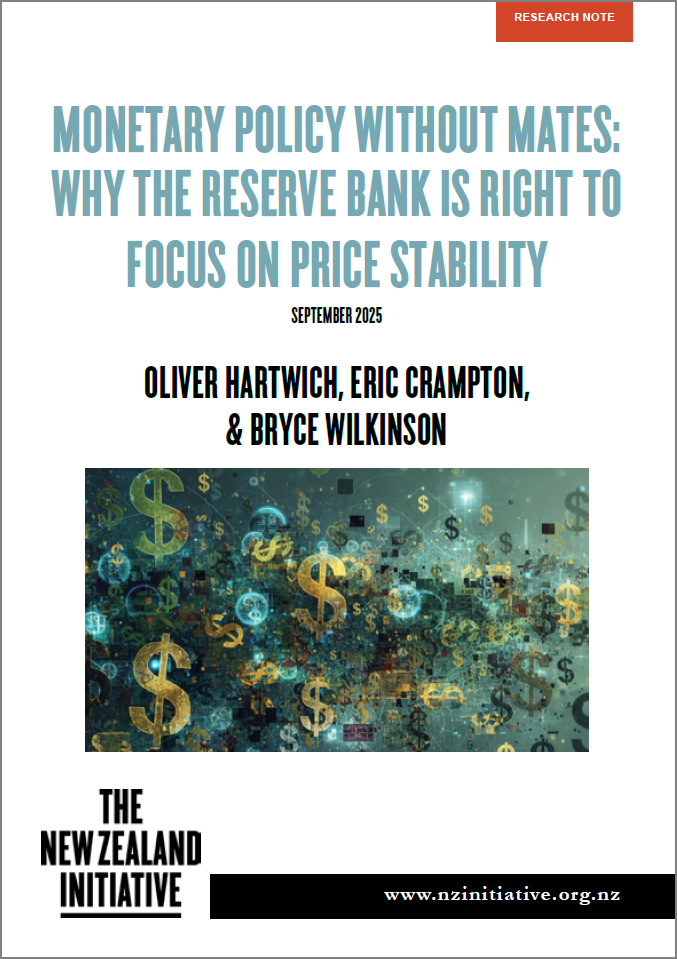The Reserve Bank of New Zealand has been unfairly scapegoated for the current recession when it was simply doing its job of bringing inflation under control.
The research note, Monetary Policy Without Mates, reveals that while the RBNZ fought to tame inflation that peaked at nearly 8%, the government's fiscal policy worked against these efforts – forcing interest rates to stay higher for longer.
"The Reserve Bank has been put in a difficult position," said Dr Eric Crampton, Chief Economist at The New Zealand Initiative. "It has a clear mandate to get inflation back to its target. Criticising the Bank for doing the very job it was set up to do is unfair and unproductive."
The analysis shows New Zealand and Australia reduced inflation at similar speeds despite different approaches. Both central banks faced the same challenge: inflation expectations were threatening to break free from their anchors – a scenario that would have been far more damaging than a short-term recession.
"The real story here is not Reserve Bank failure but policy conflict," said Dr Oliver Hartwich, Executive Director. "While the RBNZ was hitting the brakes, the government's tax cuts were adding fuel to the fire. That timing mismatch meant monetary policy had to work harder and stay tighter for longer."
The Initiative's researchers are particularly critical of political pressure on the supposedly independent central bank. Public criticism from senior political figures and pointed comments about upcoming leadership changes represent a concerning departure from convention.
"Central bank independence exists for a reason," said Senior Fellow Dr Bryce Wilkinson. "When politicians attack the Reserve Bank for doing exactly what they instructed it to do – maintain price stability – they undermine the very credibility needed to keep inflation expectations anchored."
The research note argues that better fiscal-monetary coordination could have eased the path back to price stability. Instead, New Zealand experienced what the authors call "two ships passing in the night" – monetary restraint fighting fiscal stimulus.
Monetary Policy Without Mates: Why the Reserve Bank is Right to Focus on Price Stability
23 September, 2025









